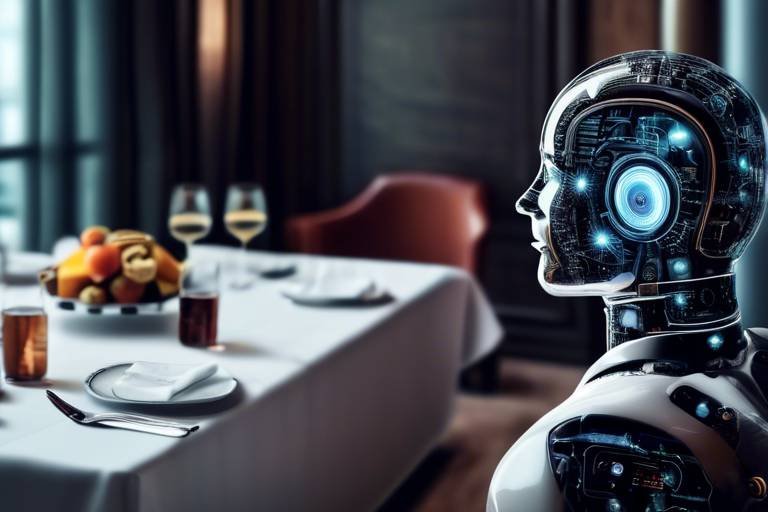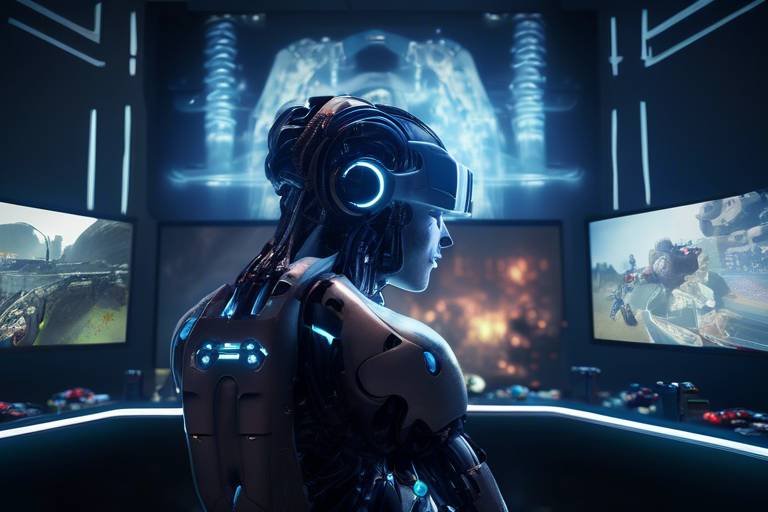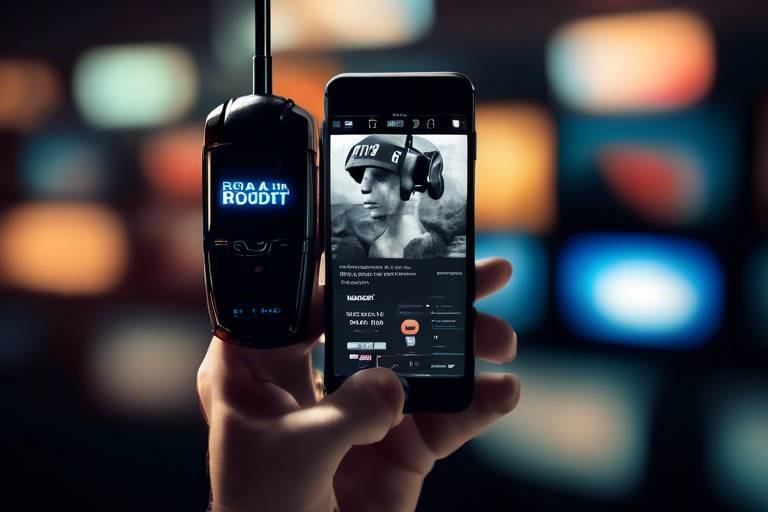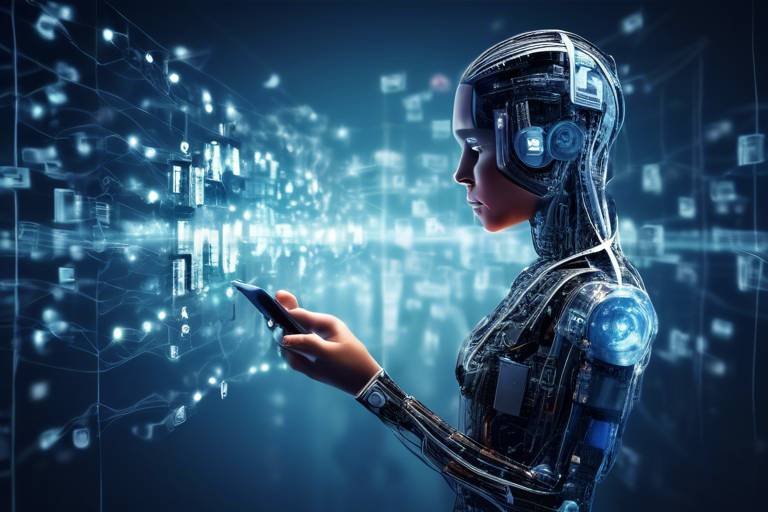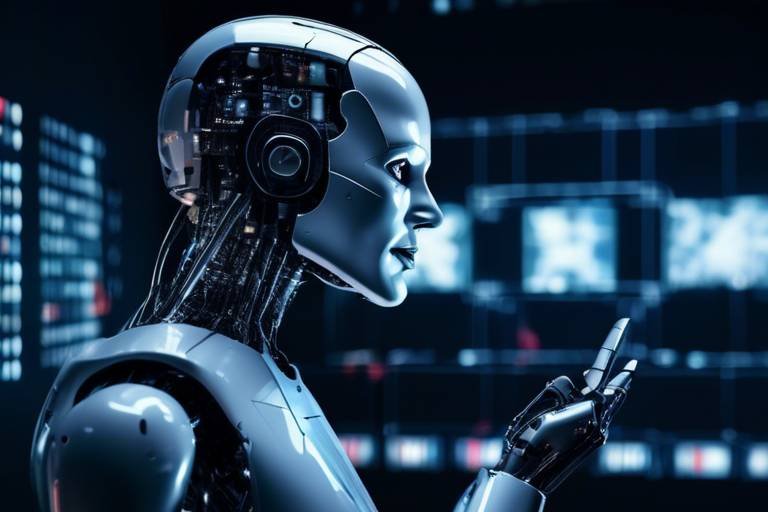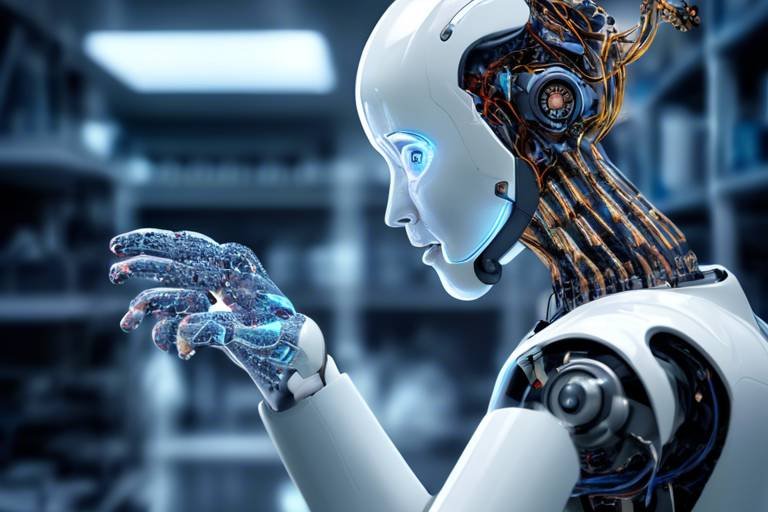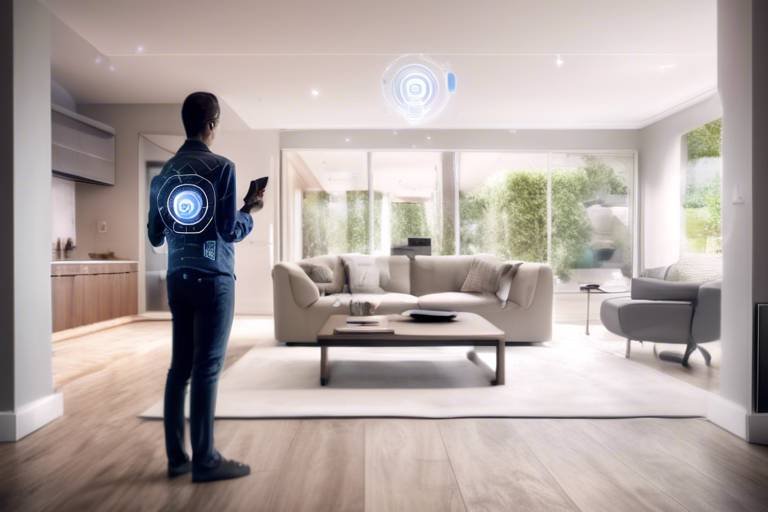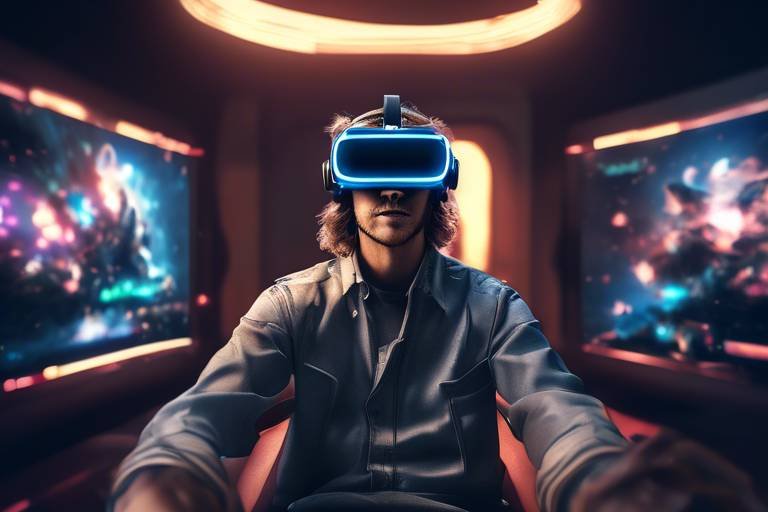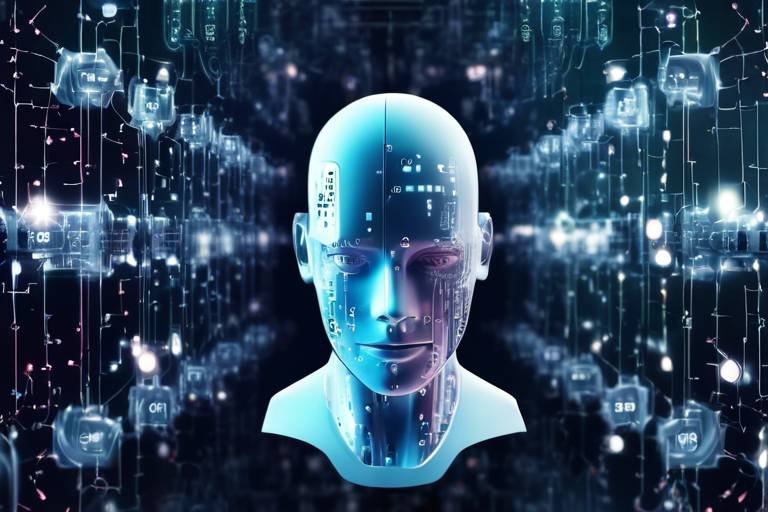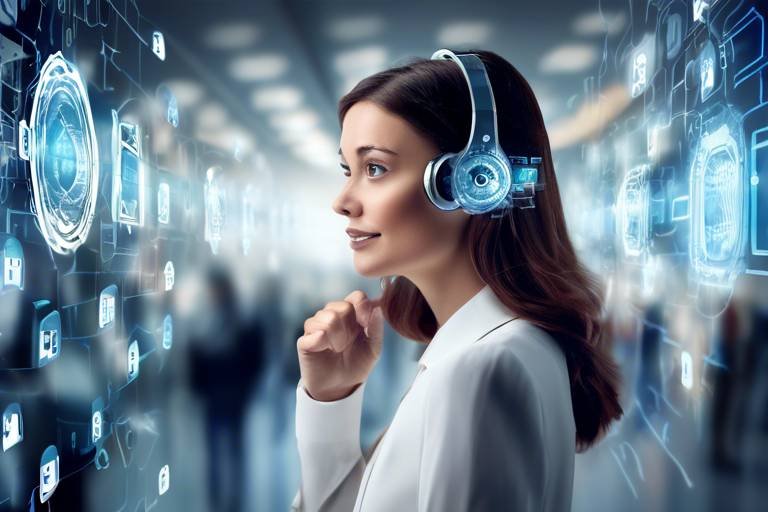The Evolution of AI in the Hospitality Sector
The hospitality industry has always been a sector driven by the need for exceptional service and guest satisfaction. As we step into a new era, artificial intelligence (AI) is playing a pivotal role in transforming how hotels, restaurants, and travel services operate. From the way we interact with guests to how we manage our operations, AI is reshaping the landscape of hospitality like never before. Imagine walking into a hotel where the front desk staff already knows your name and preferences—or a restaurant that can recommend dishes based on your dietary restrictions and past orders. This isn't just a futuristic dream; it's the reality that AI is creating today.
In this article, we will explore the transformative impact of AI in the hospitality sector, highlighting its applications, benefits, and future trends. The journey of AI in hospitality is akin to a thrilling roller coaster ride—full of twists and turns, surprises, and an explosion of possibilities that enhance both guest experiences and operational efficiency. As we delve deeper, you will discover how AI is not just a tool but a vital partner in delivering memorable experiences that keep guests coming back for more.
Let's begin by examining the rise of AI technology and how it has rapidly advanced to influence various facets of the hospitality industry. This evolution is not just a trend; it's a revolution that is redefining the standards of service and operational excellence.
The integration of AI into the hospitality industry can be traced back to several key developments. From advanced machine learning algorithms to natural language processing, the technology has matured significantly over the past decade. With the advent of smart devices and the Internet of Things (IoT), hotels and restaurants are now equipped with tools that can analyze vast amounts of data in real-time. This allows for a more personalized and efficient service delivery model.
As AI continues to evolve, it brings forth a myriad of opportunities for hospitality businesses. For instance, AI-driven analytics can help identify trends in guest preferences, allowing establishments to tailor their offerings accordingly. In addition, automation technologies are streamlining operational tasks, enabling staff to focus on what truly matters—creating memorable experiences for guests.
In the following sections, we will delve into specific applications of AI within guest services, operational efficiency, and the exciting future that awaits the hospitality sector as it embraces this transformative technology.
One of the most significant impacts of AI in hospitality is its ability to revolutionize guest services. Through the use of chatbots and virtual assistants, hotels and restaurants can enhance communication, streamline bookings, and personalize interactions with guests. Imagine having a friendly chatbot available 24/7 to answer your queries, make reservations, or provide information about local attractions—all at the touch of a button. This level of accessibility not only improves guest satisfaction but also fosters a sense of connection between establishments and their patrons.
Chatbots are becoming essential for customer support in the hospitality sector. They serve as the first point of contact for guests, answering inquiries, resolving issues, and providing assistance around the clock. With the ability to handle multiple requests simultaneously, chatbots can significantly reduce wait times and improve the overall guest experience.
The advantages of using chatbots in hospitality are plentiful:
- Instant Responses: Guests receive immediate answers to their questions, enhancing their experience.
- Cost Reduction: Chatbots help lower operational costs by automating routine tasks.
- Increased Efficiency: Staff can focus on complex tasks that require human touch, while chatbots handle the repetitive queries.
Despite their numerous benefits, implementing chatbots comes with its own set of challenges. Understanding natural language and effectively integrating with existing systems can be hurdles that businesses must navigate. However, with ongoing advancements in AI technology, solutions to these challenges are becoming more accessible.
AI's capability to analyze data allows for a level of personalization that was previously unimaginable. By examining individual guest preferences, AI can create tailored experiences that foster loyalty and enhance satisfaction. Imagine a hotel that knows your favorite pillow type or a restaurant that remembers your preferred wine. This kind of personalization not only delights guests but also encourages repeat business.
AI is not just about enhancing guest experiences; it's also a game-changer for operational efficiency. By automating repetitive tasks and utilizing predictive analytics, hospitality businesses can optimize resource allocation and streamline processes. This leads to significant cost reductions and improved profitability.
Automation is transforming daily operations in hospitality, from inventory management to housekeeping scheduling. The ability to automate these tasks not only boosts productivity but also allows staff to concentrate on providing exceptional service to guests.
Predictive analytics is another powerful tool in the AI arsenal. By accurately forecasting demand, hospitality businesses can make informed staffing and inventory decisions, ensuring they are always prepared to meet guest needs. This proactive approach to operations can lead to better resource management and enhanced guest satisfaction.
As we look ahead, the future of AI in hospitality is brimming with potential. We can expect to see further innovations in technology, along with emerging trends that will shape the industry's landscape. However, with these advancements come challenges that businesses will need to address to fully leverage the power of AI.
In conclusion, the evolution of AI in the hospitality sector is not just a passing trend; it's a fundamental shift that is enhancing guest experiences and operational efficiency. By embracing this technology, hospitality businesses can not only survive but thrive in an increasingly competitive landscape.
- What is AI in hospitality?
AI in hospitality refers to the use of artificial intelligence technologies to enhance guest experiences and improve operational efficiency in hotels, restaurants, and other service-oriented businesses.
- How does AI improve guest services?
AI improves guest services through tools like chatbots and virtual assistants that provide instant responses, streamline bookings, and personalize interactions based on guest preferences.
- What are the benefits of using chatbots?
Chatbots offer instant responses, reduce operational costs, and increase efficiency by allowing staff to focus on more complex tasks.
- What challenges do businesses face when implementing AI?
Challenges include understanding natural language, integrating with existing systems, and ensuring that AI tools effectively meet guest needs.
- What does the future hold for AI in hospitality?
The future promises further innovations in AI technology, leading to enhanced guest experiences and operational efficiencies, but also presents challenges that businesses must navigate.

The Rise of AI Technology
Artificial Intelligence (AI) technology has made remarkable strides in recent years, becoming a game-changer across various sectors, and the hospitality industry is no exception. The integration of AI into hotels and restaurants is not merely a trend; it's a profound transformation that enhances service delivery and elevates guest satisfaction to unprecedented levels. Think about it: just a few years ago, the idea of a robot serving you at a hotel or a virtual assistant handling your booking seemed like something out of a sci-fi movie. Now, it’s becoming a reality!
Several key developments have paved the way for this AI evolution. For starters, advancements in machine learning algorithms have enabled computers to learn from data and improve over time without human intervention. This is akin to teaching a child to ride a bike; the more they practice, the better they get. In the hospitality sector, this means that AI systems can analyze vast amounts of guest data, recognize patterns, and tailor services to meet individual preferences.
Moreover, the proliferation of smartphones and smart devices has created an ecosystem where AI can thrive. Guests are now accustomed to having information at their fingertips, and they expect the same level of convenience when they travel. Imagine checking into a hotel using your phone without having to stand in line—this is the kind of seamless experience that AI can provide. It’s like having a personal concierge available 24/7, ready to assist you at a moment's notice.
Another significant factor driving the rise of AI technology in hospitality is the increasing demand for operational efficiency. Hotels and restaurants are constantly seeking ways to cut costs and streamline processes. AI does just that by automating routine tasks, allowing staff to focus on delivering exceptional guest experiences. For instance, AI-powered systems can manage inventory, predict peak times, and even assist in scheduling staff—transforming the way businesses operate.
In summary, the rise of AI technology in the hospitality sector is not just about enhancing guest experiences; it's about revolutionizing how businesses operate. The future holds exciting possibilities as AI continues to evolve, making it essential for hospitality professionals to embrace these changes. As we look ahead, it’s clear that the integration of AI will only deepen, leading to even more innovative solutions that cater to the ever-evolving needs of guests.

AI Applications in Guest Services
Artificial Intelligence is not just a buzzword; it's a game changer, especially in the hospitality sector. Imagine walking into a hotel where your needs are anticipated even before you express them. Sounds like a scene from a sci-fi movie, right? But this is the reality that AI is creating in guest services today. From chatbots to virtual assistants, AI technologies are enhancing the way hotels and restaurants interact with their guests, making experiences more personalized and efficient.
One of the most significant advancements in AI applications is the use of chatbots. These digital assistants are now commonplace in the hospitality industry, serving as the first point of contact for guests. Whether it's answering queries about room availability or providing recommendations for local attractions, chatbots are available 24/7, ensuring that guests receive instant support whenever they need it. This capability not only improves communication but also significantly reduces wait times, allowing guests to get the information they need without delay.
Chatbots are revolutionizing customer support in the hospitality sector. They can handle a multitude of tasks, from booking confirmations to providing detailed information about hotel amenities. Imagine having a personal assistant in your pocket that can book your dinner reservations or suggest the best local spots to visit—all without you having to lift a finger! This level of convenience is what modern travelers are looking for, and chatbots are stepping up to meet those demands.
The benefits of using chatbots in hospitality are numerous. For starters, they provide instant responses to guest inquiries, significantly enhancing the guest experience. Additionally, they help reduce operational costs by minimizing the need for extensive customer service teams. Staff can then focus on more complex tasks that require a human touch, such as handling special requests or resolving unique issues. This shift not only improves efficiency but also elevates the overall quality of service provided to guests.
However, implementing chatbots is not without its challenges. One of the primary hurdles is ensuring that these digital assistants can understand natural language effectively. Guests often have unique ways of expressing their needs, and if a chatbot fails to comprehend these nuances, it can lead to frustration. Additionally, integrating chatbots with existing systems is crucial for a seamless experience. Hotels must ensure that their chatbots can access real-time information about availability, pricing, and services to provide accurate responses. Solutions such as continuous training and updates, along with feedback loops from guests, can help overcome these challenges.
Another fascinating application of AI in guest services is the ability to offer personalized experiences. By analyzing data from previous stays, hotels can tailor their services to meet individual guest preferences. For example, if a guest frequently orders room service during their stays, the hotel can proactively offer menu suggestions upon check-in. This level of personalization fosters a deeper connection between the guest and the establishment, enhancing loyalty and satisfaction.
In conclusion, AI applications in guest services are not just about automation; they are about creating a more engaging and personalized experience for guests. As technology continues to evolve, we can expect even more innovative solutions that will redefine how hospitality businesses operate and interact with their customers.
- What are chatbots, and how do they work in hospitality?
Chatbots are AI-driven tools that provide instant responses to guest inquiries through text or voice. They work by utilizing natural language processing to understand and respond to questions, making them available 24/7 for customer support. - How does AI personalize guest experiences?
AI analyzes data from previous interactions and preferences to tailor services, such as suggesting menu items or room preferences based on past visits. - What challenges do hotels face when implementing AI?
Key challenges include ensuring effective natural language understanding, integrating AI systems with existing technology, and maintaining up-to-date information for accurate responses. - Will AI replace human staff in hospitality?
While AI can automate many tasks, it is designed to complement human staff, allowing them to focus on more complex and personalized guest interactions that require a human touch.

Chatbots for Customer Support
In the fast-paced world of hospitality, where guest satisfaction is paramount, chatbots have emerged as a game-changer. These AI-driven tools are not just fancy gadgets; they are revolutionizing how hotels and restaurants interact with their guests. Imagine walking into a hotel and having your questions answered instantly, any time of the day or night, without waiting in line or being put on hold. That's the magic of chatbots!
Chatbots serve as the first point of contact for many guests, providing 24/7 support and ensuring that help is just a click away. They can handle a myriad of tasks, from answering frequently asked questions about hotel amenities to assisting with booking modifications. This level of accessibility not only enhances the guest experience but also frees up staff to focus on more complex inquiries that require a human touch. With chatbots, the hospitality industry is moving towards a more efficient and responsive service model.
But how exactly do chatbots improve customer support? Here are some key functionalities:
- Instant Response Time: Guests no longer have to wait for a human representative to become available. Chatbots provide immediate answers, significantly reducing response times.
- 24/7 Availability: Whether it's 2 AM or 2 PM, chatbots are always on duty, ready to assist guests at any hour.
- Handling Multiple Queries: Chatbots can manage several conversations simultaneously, ensuring that no guest feels neglected.
Moreover, the integration of chatbots into customer support systems can lead to a noticeable increase in guest satisfaction ratings. According to recent studies, hotels that have implemented chatbots have seen a 30% boost in positive guest feedback. This is not just a statistic; it reflects a fundamental shift in how guests perceive service quality. When guests feel valued and attended to, they're more likely to return and recommend the establishment to others.
However, it's essential to recognize that chatbots are not without their challenges. One of the most significant hurdles is understanding natural language. While AI has made remarkable strides, it still struggles with nuances, slang, and context that a human would easily grasp. Additionally, integrating chatbots with existing systems can pose technical difficulties. Hotels need to ensure that these systems work seamlessly together to provide a consistent guest experience.
Despite these challenges, the benefits of chatbots in customer support far outweigh the drawbacks. As technology continues to evolve, we can expect chatbots to become even more sophisticated, learning from interactions and improving their responses over time. In a world where personalization is key, chatbots are paving the way for a future where every guest feels uniquely catered to, enhancing loyalty and driving repeat business.
- What are chatbots? Chatbots are AI-driven programs designed to simulate conversation with users, providing instant support and information.
- How do chatbots improve customer service in hospitality? They offer immediate responses, 24/7 availability, and can handle multiple inquiries simultaneously, enhancing overall guest satisfaction.
- What challenges do chatbots face? The primary challenges include understanding natural language nuances and integrating with existing systems.

Benefits of Chatbots
Chatbots have become a game-changer in the hospitality sector, offering a myriad of benefits that enhance both guest experiences and operational efficiency. One of the most significant advantages is their ability to provide instant responses to customer inquiries. Imagine a guest checking in late at night, needing assistance with their reservation or room service. Instead of waiting for a human staff member to become available, a chatbot can instantly provide the information needed, ensuring that guests feel valued and attended to at all times.
Moreover, chatbots help in reducing operational costs. By automating routine inquiries and tasks, hotels can allocate their human resources to more complex and nuanced customer service issues. This not only improves overall efficiency but also allows staff to focus on creating memorable experiences for guests. For example, while a chatbot handles frequently asked questions about check-in times or amenities, human staff can concentrate on personalized guest interactions that require a human touch.
Another remarkable benefit of chatbots is their ability to operate 24/7. In a world where travelers come from various time zones and often have different schedules, having a virtual assistant available around the clock is invaluable. This constant availability means that guests can get assistance whenever they need it, without being restricted by traditional business hours. This level of service can significantly enhance guest satisfaction and loyalty.
Additionally, chatbots can gather and analyze data from guest interactions, providing hotels with insights into customer preferences and behavior. This data can be used to tailor marketing strategies and improve service offerings. For instance, if a chatbot frequently receives requests for gluten-free menu options, the hotel can take this information and adjust its offerings accordingly, showing guests that their needs are being heard and met.
While the benefits are substantial, it’s essential to acknowledge that the successful implementation of chatbots requires careful planning and integration with existing systems. However, the potential rewards—ranging from improved guest satisfaction to cost savings—make it clear that the investment in chatbot technology is well worth it for hospitality businesses looking to stay competitive in an increasingly digital world.

Challenges in Implementation
Implementing chatbots and other AI technologies in the hospitality sector is not without its hurdles. While the benefits are clear, the road to successful integration can be bumpy. One of the primary challenges is the understanding of natural language. Chatbots must be able to comprehend and respond to diverse inquiries from guests, which can range from simple questions about room availability to more complex requests like special dietary needs. This requires sophisticated algorithms and ongoing training to ensure they can handle real-world conversations effectively.
Another significant challenge is the integration with existing systems. Many hospitality businesses rely on legacy systems for booking, customer relationship management, and other operations. Merging new AI technologies with these older systems can be a daunting task, often requiring substantial time and resources. If not executed properly, this integration can lead to data silos, where valuable information is trapped within different systems, preventing a unified view of guest interactions.
Moreover, there is the issue of staff resistance. Employees may feel threatened by the introduction of AI, fearing that it could replace their jobs. To counteract this, it’s crucial for management to communicate that AI is intended to assist staff rather than replace them. Training sessions can help staff understand how to work alongside AI tools, emphasizing that these technologies are designed to handle repetitive tasks, allowing employees to focus on more complex and rewarding aspects of guest service.
Lastly, there are concerns regarding data privacy and security. With AI systems collecting and analyzing vast amounts of guest data, ensuring that this information is protected is paramount. Hospitality businesses must comply with regulations, such as GDPR, and implement robust security measures to safeguard sensitive information. Failure to do so can lead to severe consequences, including loss of customer trust and hefty fines.
In summary, while the implementation of AI in hospitality holds tremendous potential, businesses must navigate these challenges carefully. Addressing issues related to natural language processing, system integration, staff acceptance, and data security will be essential for successful AI adoption.
- What are the main challenges of implementing AI in hospitality? The key challenges include understanding natural language, integrating with existing systems, staff resistance, and ensuring data privacy and security.
- How can hotels overcome staff resistance to AI? Management should emphasize that AI is a tool to assist staff, not replace them, and provide training to help employees adapt to new technologies.
- Why is data privacy a concern with AI in hospitality? AI systems collect and analyze large amounts of guest data, making it crucial to protect this information and comply with regulations like GDPR.

Personalization through AI
In today’s fast-paced world, personalization has become a key differentiator in the hospitality sector. Guests are no longer satisfied with a one-size-fits-all approach; they crave experiences that cater to their unique preferences and needs. This is where artificial intelligence (AI) steps in, transforming how hotels and restaurants engage with their customers. By harnessing the power of data analysis and machine learning, businesses can deliver tailored experiences that enhance guest satisfaction and foster loyalty.
Imagine walking into a hotel where the staff already knows your name, your favorite drink is waiting for you in your room, and the lighting is set to your preferred ambiance. Sounds like a dream, right? Well, AI makes this a reality. By analyzing past behaviors, preferences, and even social media activity, AI systems can create a detailed profile of each guest. This data-driven approach allows hospitality providers to anticipate needs and offer personalized recommendations that resonate with individual guests.
Furthermore, AI can enhance personalization through various channels, including:
- Customized Marketing: AI algorithms analyze customer data to deliver targeted promotions and offers, ensuring that guests receive information relevant to their interests.
- Tailored Recommendations: Based on previous stays or dining choices, AI can suggest activities, meals, or services that align with a guest's preferences.
- Dynamic Pricing: AI can adjust pricing based on demand and customer behavior, ensuring guests receive the best value while maximizing revenue for the hospitality provider.
Moreover, AI-driven personalization extends beyond just initial interactions. It continues throughout the guest's stay, providing a seamless experience. For instance, if a guest frequently orders room service at a certain time, AI can automatically suggest their favorite meal at that time, making it feel like the hotel is anticipating their needs. This level of attention to detail not only enhances the guest experience but also builds a strong emotional connection between the guest and the brand.
However, it’s important to note that while personalization through AI offers significant benefits, it also raises questions about privacy and data security. Guests must feel confident that their data is being used responsibly and ethically. Hospitality businesses need to strike a balance between delivering personalized experiences and maintaining guest trust by implementing robust data protection measures.
In conclusion, AI is revolutionizing the way the hospitality industry approaches personalization. By leveraging data and technology, hotels and restaurants can create unique, memorable experiences that not only satisfy guests but also encourage repeat visits. As we move forward, the role of AI in personalization will only grow, making it an essential element in the future of hospitality.
- How does AI improve guest personalization?
AI analyzes guest data to tailor experiences, recommend services, and anticipate needs based on individual preferences. - Are there privacy concerns with AI personalization?
Yes, guests may worry about how their data is used. It's crucial for businesses to ensure transparency and robust data protection measures. - Can AI replace human interaction in hospitality?
While AI enhances personalization, it is meant to complement human interaction, not replace it. The best experiences often blend technology with personal touch.

Operational Efficiency and Cost Reduction
The hospitality industry is no stranger to the pressures of maintaining high-quality service while keeping costs manageable. With the advent of artificial intelligence (AI), businesses are discovering innovative ways to enhance operational efficiency and achieve significant cost reductions. AI technologies are not just buzzwords; they are becoming essential tools that can transform the way hotels and restaurants operate. Imagine being able to predict the number of guests arriving on a particular day or automating mundane tasks that consume valuable time and resources. That’s the power of AI!
One of the most impactful applications of AI in hospitality is through automation. Daily operations, such as inventory management and housekeeping scheduling, can be streamlined with intelligent systems that learn and adapt over time. For instance, AI can analyze historical data to predict when certain supplies will run low, ensuring that inventory is always stocked without over-purchasing. This not only saves money but also reduces waste, making operations more sustainable.
Another area where AI shines is in predictive analytics. By leveraging data from various sources, AI can forecast demand more accurately than traditional methods. This capability allows hospitality businesses to make informed decisions regarding staffing and inventory. For example, if an AI system predicts a surge in bookings for a holiday weekend, managers can proactively adjust staffing levels to meet the increased demand. This foresight not only enhances the guest experience but also optimizes labor costs, which is a win-win situation.
To illustrate the potential savings and efficiency gains, consider the following table that outlines the impact of AI on operational costs:
| AI Application | Cost Impact | Efficiency Improvement |
|---|---|---|
| Automated Inventory Management | Reduces excess inventory costs by up to 20% | Improves stock accuracy by 30% |
| Predictive Staffing | Decreases labor costs by 15% | Enhances service levels during peak times |
| Chatbots for Customer Queries | Cuts customer service costs by 25% | Increases response time by 50% |
While the benefits of AI are vast, it’s important to acknowledge that the transition to these technologies can come with challenges. Hotels and restaurants must invest in the right infrastructure and training to ensure a smooth implementation. However, the long-term gains in efficiency and cost savings often outweigh the initial investment. The key is to approach AI integration strategically, focusing on areas that will yield the most significant impact.
In conclusion, the integration of AI in the hospitality sector is not just about keeping up with technological trends; it's about fundamentally reshaping how businesses operate. By enhancing operational efficiency and reducing costs, AI provides a pathway for hotels and restaurants to thrive in a competitive landscape. The future is bright for those who embrace these changes, as they can offer unparalleled experiences to their guests while maintaining a healthy bottom line.
- How does AI improve operational efficiency in hospitality?
AI automates repetitive tasks, predicts demand, and optimizes resource allocation, leading to increased productivity and reduced costs. - What are some examples of AI applications in hotels?
Examples include chatbots for customer service, automated inventory management, and predictive analytics for staffing needs. - Are there challenges in implementing AI in the hospitality sector?
Yes, challenges include understanding natural language processing, integrating with existing systems, and the need for staff training.

Automation in Daily Operations
In the fast-paced world of hospitality, automation is not just a luxury; it's becoming a necessity. Imagine walking into a hotel where everything is seamlessly managed by intelligent systems. From inventory management to housekeeping schedules, automation is revolutionizing how hotels operate on a daily basis. This transformation is akin to upgrading from a horse-drawn carriage to a sleek, modern car—everything becomes faster, smoother, and more efficient.
One of the most significant areas where automation shines is in inventory management. Traditionally, hotel staff would spend hours manually tracking supplies, often leading to over-ordering or running out of essential items. However, with automated systems, hotels can now monitor inventory levels in real-time. This not only streamlines the process but also ensures that resources are used efficiently. For example, a hotel can set up alerts for when stock levels drop below a certain threshold, allowing for timely reordering without the headache of manual checks.
Another critical aspect of automation is in housekeeping scheduling. Imagine a scenario where a hotel can automatically assign cleaning tasks based on guest check-ins and check-outs. This not only optimizes staff schedules but also enhances the guest experience. Guests appreciate a room that is ready when they arrive, and automation ensures that housekeeping can respond quickly to changes in occupancy. By utilizing software that analyzes guest data and operational needs, hotels can create a dynamic workflow that adapts to real-time circumstances.
Furthermore, automation extends to guest services as well. For example, automated systems can handle requests for extra towels or room service, allowing staff to focus on more personalized guest interactions. This shift is similar to how self-checkout machines in supermarkets have changed the shopping experience—while they handle simple transactions, human cashiers can devote more time to helping customers with complex needs.
Of course, the transition to automation isn't without its challenges. Hotels must invest in technology and training to ensure that staff can effectively use these new systems. However, the long-term benefits far outweigh the initial hurdles. According to a recent study, hotels that have embraced automation have seen a marked increase in operational efficiency and guest satisfaction.
| Area of Automation | Benefits |
|---|---|
| Inventory Management | Real-time tracking, reduced waste, timely reordering |
| Housekeeping Scheduling | Optimized staff allocation, improved guest experience |
| Guest Services | Faster response times, enhanced personalization |
In conclusion, the integration of automation into daily operations is reshaping the hospitality landscape. Just as the advent of the internet transformed communication, automation is streamlining processes and enhancing guest experiences. As hotels continue to adapt to these changes, the focus will remain on leveraging technology to provide exceptional service and operational excellence.
- What is the main benefit of automation in hotels? Automation enhances efficiency, reduces operational costs, and improves guest satisfaction.
- How does automation affect staff roles? While some tasks are automated, staff can focus on providing personalized services, enhancing the overall guest experience.
- Are there any challenges to implementing automation? Yes, challenges include initial costs, technology integration, and staff training.
- Can automation improve guest loyalty? Absolutely! By providing personalized and timely services, guests are more likely to return.

Predictive Analytics for Demand Forecasting
In the fast-paced world of hospitality, understanding guest demand is crucial for success. Enter predictive analytics, a game-changing tool that leverages data to forecast future trends and behaviors. By analyzing historical data, current market conditions, and various external factors, hotels and restaurants can make informed decisions that enhance operational efficiency and maximize profitability. Imagine being able to predict a surge in bookings during a holiday weekend before it happens—this is the power of predictive analytics.
One of the most significant advantages of predictive analytics is its ability to transform raw data into actionable insights. For instance, by examining past occupancy rates, pricing strategies, and guest demographics, businesses can identify patterns that inform their future strategies. This data-driven approach allows hospitality providers to tailor their offerings to meet anticipated demand, ensuring they are neither overstaffed nor underprepared. It's like having a crystal ball that reveals not just what guests want, but when they want it.
To illustrate the impact of predictive analytics, consider the following table that showcases how different factors contribute to demand forecasting:
| Factor | Impact on Demand |
|---|---|
| Seasonality | Higher demand during holidays and summer months |
| Local Events | Increased bookings during festivals, conferences, or sports events |
| Market Trends | Shifts in consumer preferences, such as eco-tourism or wellness travel |
| Economic Indicators | Fluctuations in the economy that affect disposable income and travel budgets |
By integrating these insights into their operations, hospitality businesses can optimize their staffing levels and inventory management. For example, if predictive analytics indicates a high demand for rooms on a specific weekend, a hotel can adjust its staffing accordingly, ensuring that they have enough staff to provide exceptional service without incurring unnecessary labor costs. Similarly, restaurants can anticipate the need for additional ingredients, minimizing wastage and ensuring they meet guest expectations.
However, while the benefits of predictive analytics are clear, implementing such systems is not without its challenges. One major hurdle is the need for high-quality data. If the data collected is inaccurate or incomplete, the forecasts will be flawed, leading to poor decision-making. Furthermore, businesses must also invest in the right technology and training to analyze and interpret the data effectively. This investment, while initially daunting, can yield significant returns in the long run.
In conclusion, predictive analytics for demand forecasting is revolutionizing the hospitality sector. By harnessing the power of data, businesses can anticipate guest needs, optimize their operations, and stay ahead of the competition. As technology continues to evolve, those who embrace predictive analytics will not only survive but thrive in this ever-changing landscape.
- What is predictive analytics? Predictive analytics uses statistical algorithms and machine learning techniques to identify the likelihood of future outcomes based on historical data.
- How can predictive analytics benefit the hospitality industry? It helps businesses forecast demand, optimize staffing, manage inventory, and tailor services to enhance guest experiences.
- What challenges are associated with implementing predictive analytics? Challenges include data quality, technology costs, and the need for skilled personnel to analyze and interpret the data.

The Future of AI in Hospitality
The future of AI in hospitality is not just bright; it’s dazzling! As technology continues to evolve, the hospitality sector is poised to embrace innovations that will redefine guest experiences and operational efficiencies. Imagine walking into a hotel where the front desk recognizes you by name and has already prepared your favorite room based on your previous visits. Sounds like something out of a sci-fi movie, right? But with the rapid advancements in AI, this is becoming a reality!
One of the most exciting trends is the integration of AI with Internet of Things (IoT) devices. Hotels are increasingly adopting smart technologies that allow guests to control room settings—like lighting, temperature, and entertainment—through their smartphones or voice commands. This level of personalization not only enhances the guest experience but also provides valuable data to hotels, enabling them to tailor services even further.
Moreover, AI is set to play a pivotal role in enhancing sustainability practices within the hospitality industry. By leveraging predictive analytics, hotels can optimize energy consumption, reduce waste, and manage resources more effectively. For instance, AI can analyze occupancy patterns and adjust heating or cooling systems accordingly, leading to significant cost savings and a smaller carbon footprint. This is not just a win for the environment; it’s a win for hotels looking to appeal to the eco-conscious traveler.
However, the journey into the future isn't without its challenges. As AI becomes more integrated into hospitality, concerns regarding data privacy and security will need to be addressed. Guests are becoming increasingly aware of how their personal information is used, and hotels must ensure that they have robust systems in place to protect this data. Transparency will be key, and those who can build trust with their guests will undoubtedly have a competitive edge.
As we look ahead, it’s clear that AI will continue to shape the hospitality landscape in remarkable ways. Here’s a glimpse of what we can expect:
- Enhanced Customer Engagement: AI-driven tools will provide more personalized communication, ensuring guests feel valued and understood.
- Dynamic Pricing Models: AI algorithms will analyze market trends and customer behavior to offer real-time pricing adjustments, maximizing revenue.
- Virtual Reality Experiences: Hotels may use VR to give potential guests a preview of their accommodations, creating an immersive booking experience.
- Robotics in Service: From robotic concierges to automated room service, the use of robotics will streamline operations and enhance guest interactions.
In conclusion, the future of AI in hospitality is not just about technology; it’s about creating unforgettable experiences for guests while driving efficiency and profitability for businesses. As we embrace these advancements, the hospitality industry stands on the brink of a transformative era, one where the fusion of human touch and technological innovation creates a seamless and delightful journey for every traveler.
Q1: How will AI improve customer service in hotels?
AI will enhance customer service by providing instant responses through chatbots, personalizing guest interactions, and anticipating needs based on past behaviors, leading to improved satisfaction.
Q2: What are the potential risks associated with AI in hospitality?
The main risks include data privacy concerns, the potential for job displacement, and reliance on technology that could fail or malfunction.
Q3: How can hotels ensure data security when using AI?
Hotels can ensure data security by implementing strong encryption methods, conducting regular security audits, and maintaining transparency with guests about how their data is used.
Q4: Will AI replace human staff in hotels?
While AI will automate certain tasks, the human touch will always be essential in hospitality. AI will assist staff rather than replace them, allowing employees to focus on providing exceptional service.
Frequently Asked Questions
- What is the role of AI in the hospitality industry?
AI plays a transformative role in the hospitality industry by enhancing guest experiences and improving operational efficiency. From chatbots providing 24/7 customer support to predictive analytics optimizing resource allocation, AI is revolutionizing how hotels and restaurants operate.
- How do chatbots improve guest services?
Chatbots improve guest services by offering instant responses to inquiries, handling bookings, and personalizing interactions based on guest preferences. This not only enhances communication but also ensures that guests receive timely assistance, leading to higher satisfaction levels.
- What are the benefits of using AI for personalization?
The benefits of using AI for personalization include tailored experiences that cater to individual guest preferences, which can significantly boost guest loyalty. By analyzing data and utilizing machine learning, hospitality businesses can create customized offerings that resonate with their guests.
- What challenges do hotels face when implementing AI?
Hotels face several challenges when implementing AI, such as understanding natural language, integrating AI solutions with existing systems, and ensuring data privacy. Overcoming these hurdles requires careful planning and investment in technology and training.
- How does AI contribute to operational efficiency?
AI contributes to operational efficiency by automating daily tasks like inventory management and housekeeping scheduling. This allows staff to focus on more complex responsibilities while reducing errors and optimizing processes, ultimately leading to cost savings.
- What is predictive analytics, and how is it used in hospitality?
Predictive analytics involves using historical data to forecast future demand, which helps hospitality businesses make informed decisions regarding staffing and inventory. By leveraging AI-driven insights, hotels can better anticipate guest needs and optimize their operations accordingly.
- What does the future hold for AI in the hospitality sector?
The future of AI in hospitality looks promising, with continuous innovations expected to enhance guest experiences and streamline operations. Emerging trends may include more advanced personalization techniques, improved automation, and the integration of AI into various aspects of hotel and restaurant management.

